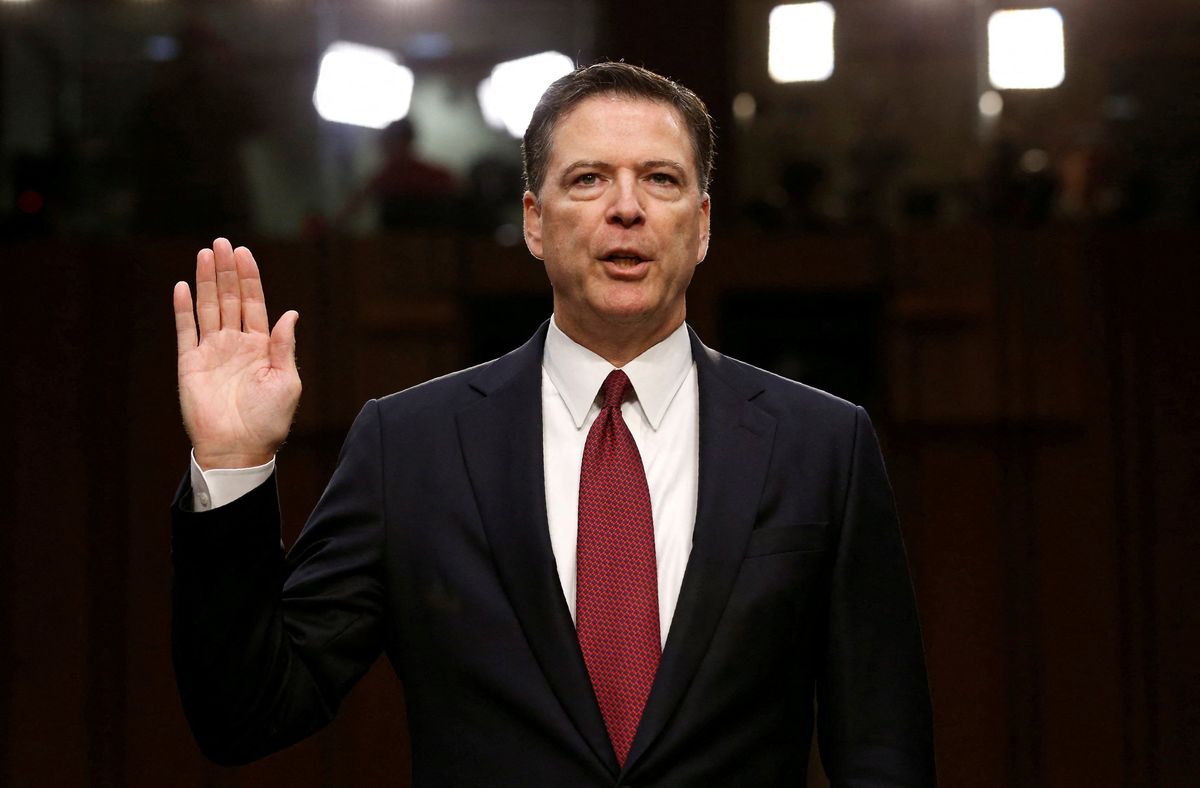
Former FBI Director James Comey notched an early victory in his criminal indictment Tuesday as a federal judge ruled in his favor over a dispute involving evidence.
Federal prosecutors initially filed for a protective order in the case that would prevent Comey from having open access to the evidence presented to the grand jury to secure the indictment in the first place, arguing that Comey could leak the evidence to the media and undermine the trial.
Comey's legal team responded by urging the court to deny this restriction, with attorney Patrick Fitzgerald writing, "Protective orders addressing the confidentiality and privacy interests of others should not override a defendant’s right to a fair trial."
U.S. District Judge Michael S. Nachmanoff sided with the defense in a two-page opinion released on Tuesday morning.
"The Court shares the government’s concern regarding the possibility of inappropriate dissemination of sensitive information as well as Defendant’s concern regarding his ability to defend himself, and both parties’ interest in a fair trial," wrote Nachmanoff.
"In balancing these considerations, the Court finds that the circumstances of this case do not support the government’s proposed limitations on the sharing of 'Protected Material' with Defendant or prospective defense witnesses, which would unnecessarily hinder and delay Defendant’s ability to adequately prepare for trial. The Court further finds that the government’s proposal does not sufficiently define the information constituting 'Protected Material,' thereby making it overbroad."
Comey, a longtime target for Trump's anger ever since he refused to shut down the Russia investigation in 2017, has been indicted on one count of making false statements and one count of obstruction of justice, based on allegedly lying in Senate testimony years ago about leaks from the Justice Department during his tenure.
Legal experts have broadly panned the indictment as weak, and Trump's chosen prosecutor, Lindsey Halligan, who was installed to replace his previous U.S. attorney who had failed to find sufficient evidence in this case, has been widely criticized for a series of blunders in the indictment process.




